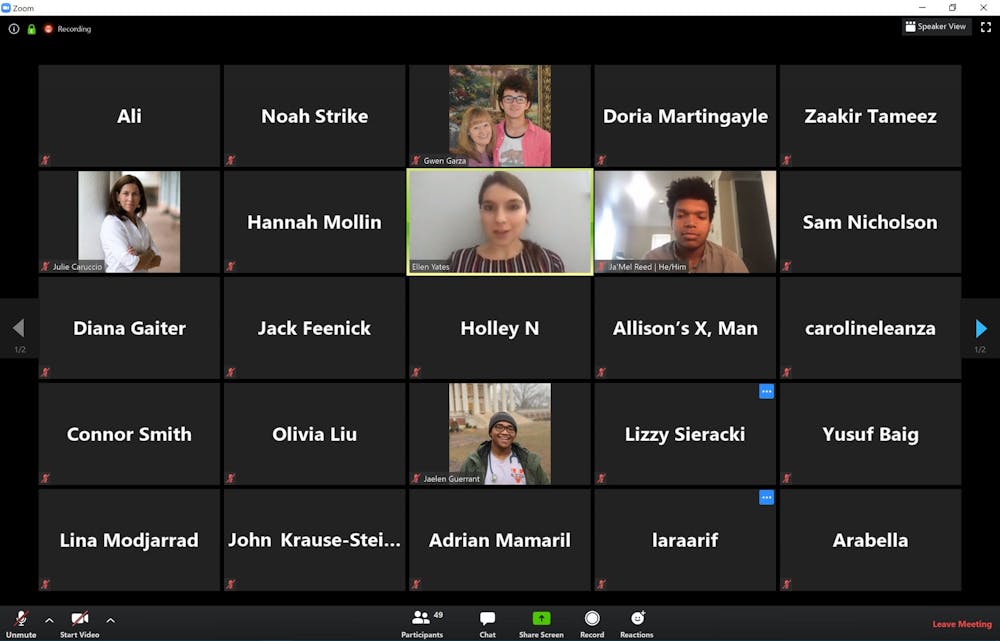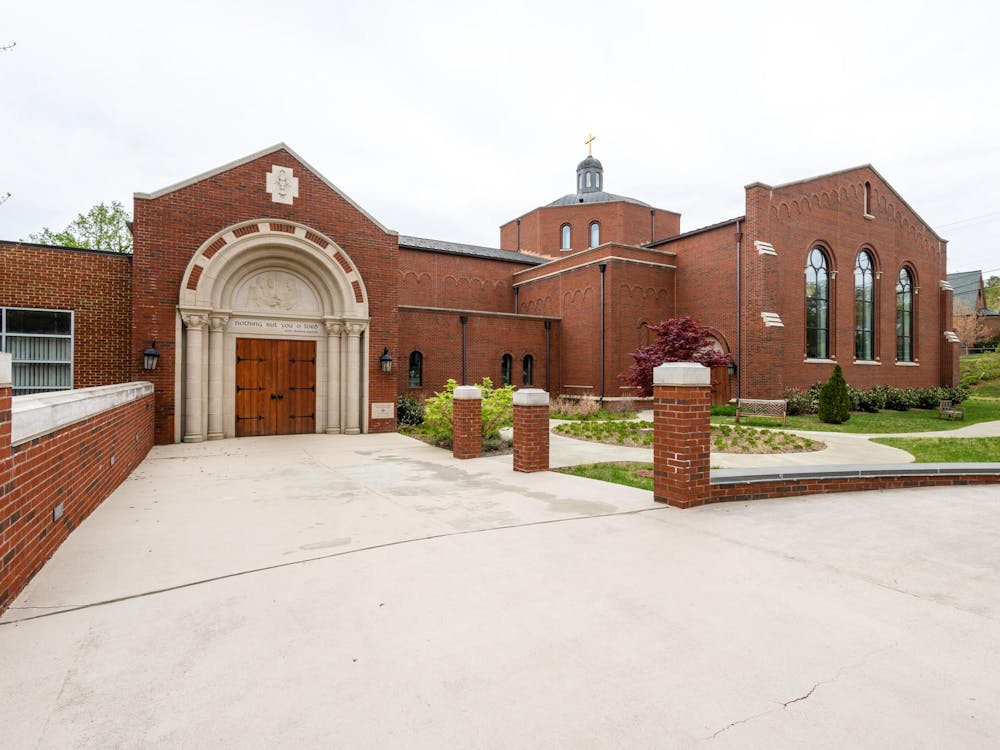Student Council hosted a virtual town hall Friday with rising fourth-year College student Ja’Mel Reed, who serves as the student representative on the University’s Fall 2020 Committee — a group tasked with developing various administrative, academic and financial recommendations for the fall semester. Over 50 people attended the Zoom session, during which Reed discussed the committee’s progress and fielded audience questions regarding the upcoming fall semester.
Throughout the town hall, Reed made one message clear — the committee is still considering all possibilities for fall 2020.
“Everything is still on the table,” Reed said. “As we learn more, we’re trying to figure out what possibilities and options we didn’t even have as other schools tell their action plans.”
Reed began the meeting with an explanation of the Fall 2020 Committee’s process, but the Zoom session was quickly “Zoom-bombed” by several users not affiliated with the University, who bombarded the video call with racist slurs. Student Council President Ellen Yates, a rising fourth-year College student, ended the call, and a new virtual town hall — with heightened security features — began 30 minutes later without issue.
In a statement released after the town hall, Yates apologized for the Zoom-bombing and stated that Student Council would alert University administration of the incident.
“We want [to] address the zoombombing incident that took place at the beginning of the town hall, and acknowledge that there were racial slurs used in the hack,” Yates wrote. “This language and content was shocking and horrifying, and has absolutely no place within this organization or our community. Students should never have to fear experiencing such racially-based attacks, and we are deeply upset that our town hall became a platform for it.”
The second virtual meeting began without security problems.
Reed explained that the Fall 2020 Committee — which meets five to eight times per week — is currently in the second phase of a multiphase process, and the committee expects to make its recommendation to the University by mid-June. The second phase involves gathering input from the University community by bringing in student leaders, workers and professors.
Reed said the committee currently is considering a wide range of options — particularly by watching the action plans of similar schools.
“We are watching what other universities do and try to look at comparable universities,” Reed said. “We can look at these universities like Ivies and see what they do, but that’s a very different population and infrastructure.”
In Virginia, only James Madison University and Radford University have formally announced their intentions to return for an in-person fall semester.
The committee’s deliberations also include consideration for immunocompromised students, international students and those who otherwise may not want to return to Grounds amid the ongoing pandemic. In every action plan being considered, Reed said, there are provisions for students to take classes online, if they choose to do so.
The University of North Carolina at Chapel Hill has adopted this approach through an online learning program called “Carolina Away.” Although the university plans to open for an abbreviated in-person fall semester, up to 1,000 students can participate in the program if they encounter visa issues or would prefer to not live in residence halls.
Other logistical concerns for the fall semester — such as the on-Grounds housing situation, mandatory quarantine periods and an early start to the semester — are still under consideration by the committee. If students do return to Grounds, Reed said, the committee plans to work with student leaders to craft new, safer norms for students’ everyday lives.
“We’re really trying to work with student leaders to figure out what is some kind of norm we can return to, and how we can set the precedent for that,” Reed said. “A collaborative set of norms ... instead of feeling like we’re being policed by the University.”
After Reed answered pre-submitted questions, he fielded live questions from the virtual audience, covering topics such as the recently-formed Student COVID Coalition, tuition costs, contact tracing and coordination with the Charlottesville community.
One student asked Reed how the Fall 2020 Committee will ensure that the Student COVID Coalition — a student-led volunteer group that aims to “provide and centrally coordinate the increased labor needed to operate University of Virginia in the COVID-19 pandemic” — will not become “free labor that replaces paid labor, undermining potential collective bargaining efforts.” Reed asserted that the replacement of paid workers by volunteers “should definitely not happen,” although the committee was impressed by the students’ initiative.
“The committee’s excitation at the coalition is stemming from students who started this, seeing the gumption that students have to make change,” Reed said. “For me personally, it was good to see students work and make a sacrifice.”
Although University employment decisions are beyond the jurisdiction of the Fall 2020 Committee, Reed said he would personally speak out against any replacement of employees by volunteers, if that were to happen.
During the Q&A period, Reed said that tuition changes and on-Grounds housing are still up in the air, and the committee is considering a variety of options — all of which depend on guidelines from the Centers for Disease Control and local health authorities. Reed made it clear that guidance from health experts is critical to all decisions made by the committee — especially when it comes to ensuring the safety of the surrounding Charlottesville community.
“Our impact on the Charlottesville community has been really looked at as much as how this will impact students,” Reed said. “I would say we’re trying to give more attention to the Charlottesville community than students — trying to make sure we keep this community that allows us here as safe as possible.”
To end the town hall, Yates encouraged attendees to continue to be active in discussions about the fall semester.
“Hopefully one of the big takeaways here is that there’s still a lot to get input in and to raise your voices about,” Yates said. “Please continue to be vocal, to be active.”
The committee’s decision on the fall semester is not final. Instead, they will provide their recommendation to University President Jim Ryan — who, along with University administration, will have the final say on the fall semester.







